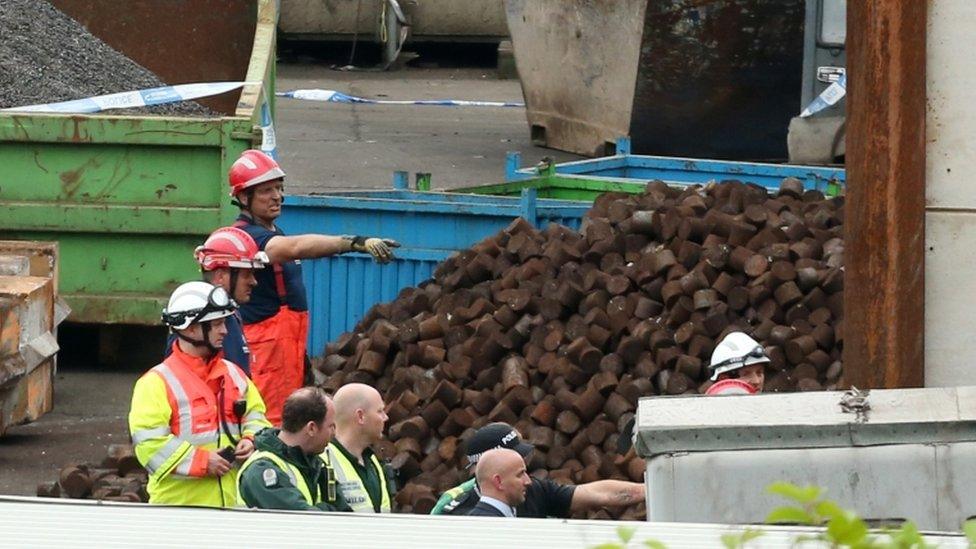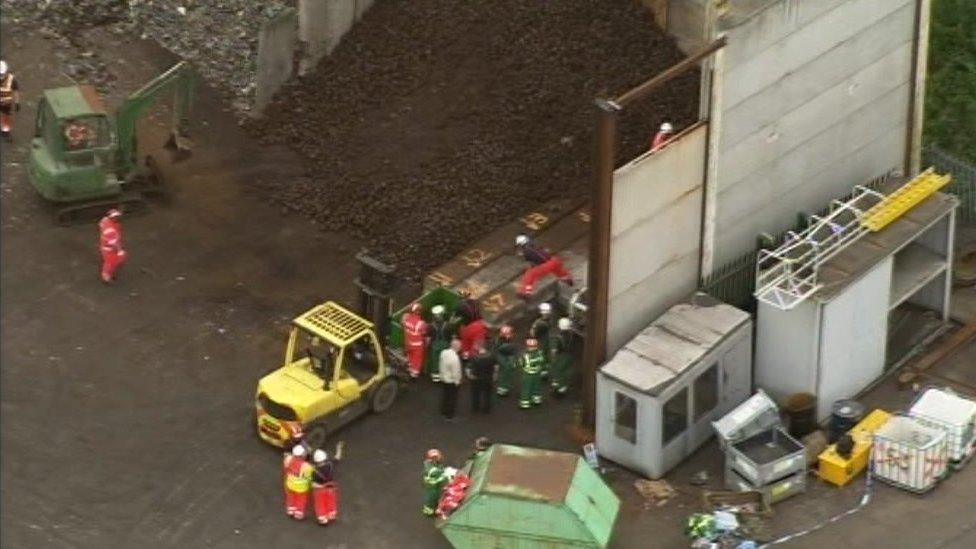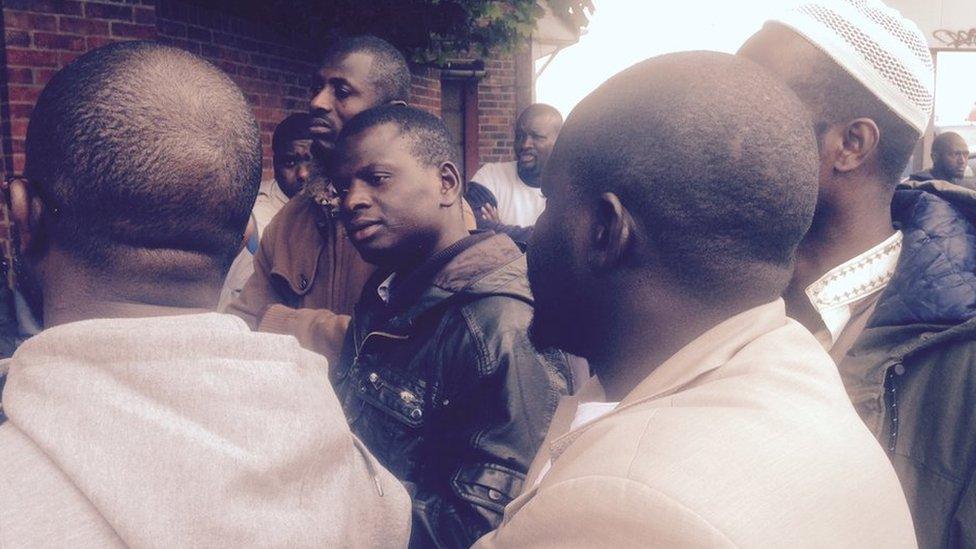Nechells wall collapse deaths: Families reject inquest verdict
- Published

The workers clockwise from top left: Mahamadou Jagana, Almamo Jammeh, Saibo Sillah, Bangally Dukureh and Ousmane Diaby
The families of five men who died in a scrapyard wall collapse have rejected an inquest's accidental death verdict, believing them unlawfully killed.
The workers died when the 11.8ft (3.6m) concrete partition came down on them at Hawkeswood Metal Recycling in Birmingham in July 2016.
A jury found the risk of its collapse was never identified, despite being "foreseeable".
It also found it going unnoticed had "caused or contributed" to the deaths.
Almamo Jammeh, 45, Ousmane Diaby, 39, Bangally Dukureh, 55, Saibo Sillah, 42, and Mahamadou Jagana, 49, were clearing out a scrap metal storage bay when they died at the plant in Nechells.
Smethwick's Gambian Islamic Community Centre has been supporting victims' families
A statement released by the families on Friday said it was clear to them the "deaths were avoidable".
They said they were "extremely disappointed" by the accidental death ruling, and "shocked" the men were killed at a plant in "one of the most developed countries in the world".
"Our loved ones did not expect to die when they went to work on 7 July 2016," the families said.
"They were honest, hardworking, decent human beings whose loss we cannot begin to measure."
The workers - four from The Gambia and one from Senegal - had been working in Spain but came to the UK after finding it increasingly difficult to find employment on the continent.
The widow of Bangally Dukureh has spoken through an interpreter
During two-week proceedings, the jury heard that part of a 263-tonne pile of metal briquettes - stored in an adjacent bay against the wall - had also fallen on the group when the partition gave way.
The wall had been "overloaded" by the metal against it, jurors were told, with the 3m pile stacked twice as high as was safe and proving too powerful a force for the wall's resistance.
The inquest, overseen by Birmingham and Solihull coroner Emma Brown, heard from Martyn Ostcliffe, an engineering expert at the Health and Safety Executive (HSE).
He said there were no risk assessments in place at the site and called safety inspections a "tick-box exercise", adding the wall "could have gone at any time".

It took a huge operation to recover the bodies of the five men
The HSE has told the BBC its own investigation is proceeding.
During the inquest, the jury heard from HSE investigator Paul Cooper who said "common sense" was enough to suggest the wall was at risk of collapsing and the site could have "most definitely" identified it.
Mr Ostcliffe said only a small "trigger" was needed to bring down the wall, suggesting the men's work in the neighbouring bay was enough.
Wayne Hawkeswood, managing director of Shredmet Ltd, which runs the yard, said in a statement read to the inquest on Monday that he "simply cannot comprehend how this happened".
He added: "I am absolutely devastated by the deaths of the five men and constantly think about the loss their family and friends have suffered."
The inquest heard the workers had "devastating blunt force injuries" and were identified by their fingerprints.
- Published15 November 2018

- Published14 November 2018

- Published13 November 2018

- Published9 November 2018

- Published8 November 2018

- Published7 November 2018

- Published8 July 2016

- Published7 July 2016
